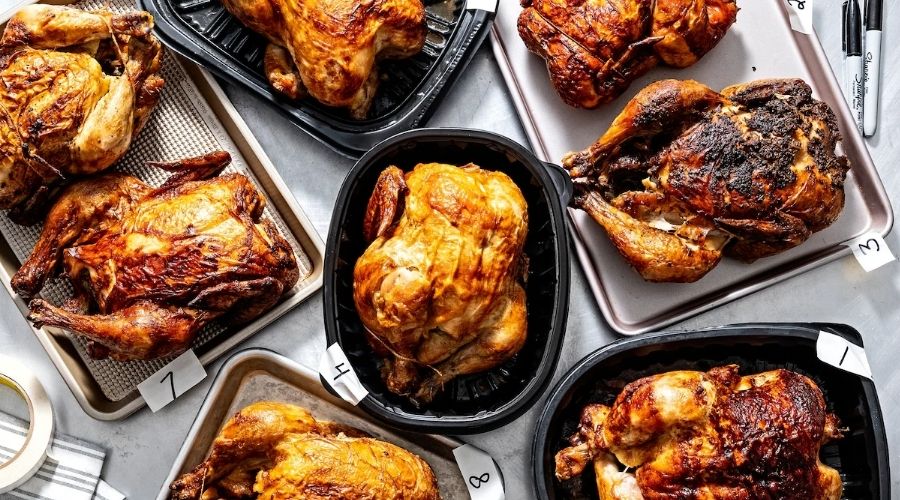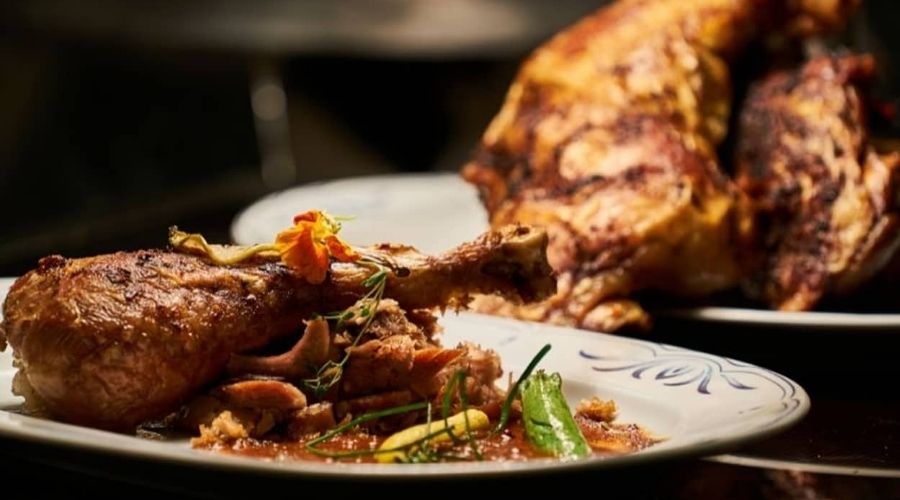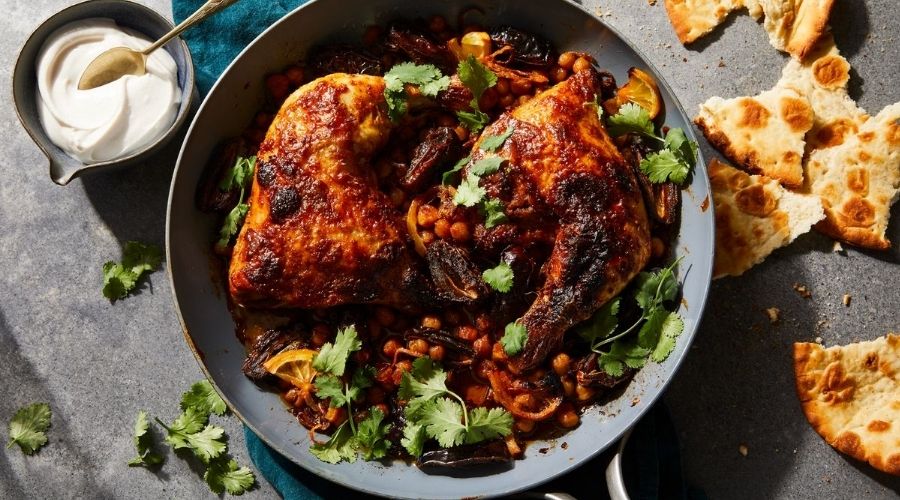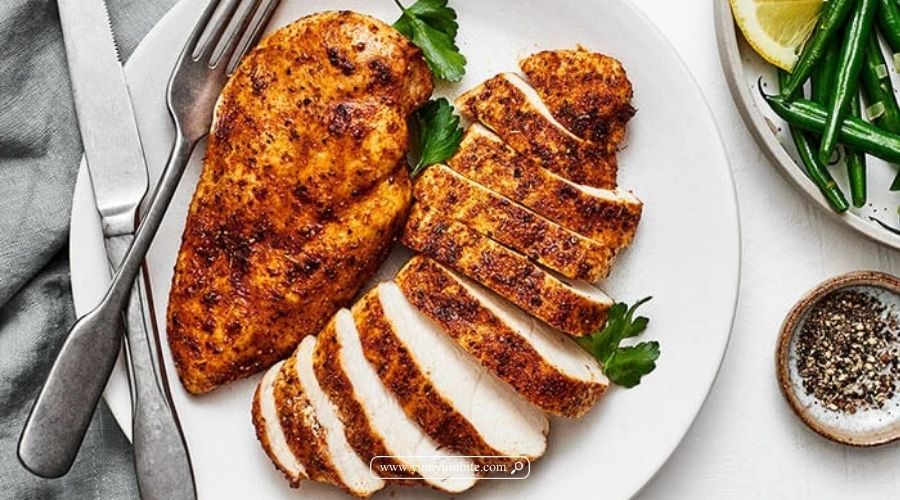Storing cooked chicken properly is essential for maintaining its freshness, flavor, and safety.
Whether you’re meal prepping for the week or simply trying to preserve leftovers, understanding the best practices for storing cooked chicken can help prevent food waste and protect your health.
From cooling and packaging to refrigeration and freezing, this guide covers everything you need to know about how to store cooked chicken effectively.
By following these guidelines, you can ensure your meals remain delicious and safe to eat, making your culinary endeavors more enjoyable and efficient.
Why Storing Cooked Chicken Properly Matters
Storing cooked chicken properly is crucial for both safety and taste. Chicken is highly susceptible to bacterial growth, especially when it’s left at room temperature for too long.
If not stored correctly, harmful bacteria such as Salmonella or E. coli can develop, which may lead to foodborne illnesses.
Proper storage ensures that the chicken remains safe to eat while maintaining its moisture, flavor, and texture.
Additionally, by using the right methods to refrigerate or freeze cooked chicken, you can extend its shelf life, reduce food waste, and make meal planning easier for future use.
Taking the time to store cooked chicken properly not only preserves its quality but also ensures the health and safety of those consuming it.
How to Store Cooked Chicken: A Complete Guide

Proper storage of cooked chicken is essential to prevent spoilage, maintain flavor, and ensure food safety.
Here’s a step-by-step guide on how to store cooked chicken correctly, whether you’re planning to refrigerate it for a few days or freeze it for long-term storage.
1. Cool the Chicken Before Storing
Before storing cooked chicken, make sure it has cooled down to room temperature.
However, it should not sit out for more than 2 hours (or 1 hour if the room temperature is above 90°F). Cooling it down quickly minimizes the risk of bacterial growth.
2. Use Airtight Containers
Once the chicken has cooled, transfer it into airtight containers or resealable plastic bags.
Using airtight storage prevents moisture loss and keeps the chicken from absorbing other odors in the fridge or freezer.
3. Refrigerating Cooked Chicken
If you plan to eat the chicken within the next few days, store it in the refrigerator.
Place the chicken in an airtight container and store it in the fridge at 40°F (4°C) or below. Cooked chicken can last 3 to 4 days in the refrigerator.
4. Freezing Cooked Chicken
For longer storage, freezing is the best option. To freeze cooked chicken:
- Place the chicken in freezer-safe bags or containers.
- Press out as much air as possible from the bags before sealing them to avoid freezer burn.
- Label the containers with the date so you can track how long they’ve been in the freezer. Cooked chicken can be frozen for up to 4 months.
5. Reheating Cooked Chicken
When you’re ready to eat stored cooked chicken, make sure to reheat it to an internal temperature of 165°F (75°C) to ensure it’s safe for consumption.
You can reheat it in the microwave, oven, or on the stovetop, adding a bit of moisture like broth or water to prevent it from drying out.
6. Thawing Frozen Cooked Chicken
The safest way to thaw frozen cooked chicken is by transferring it from the freezer to the fridge. Allow it to thaw overnight.
Alternatively, you can use the microwave’s defrost setting or submerge the sealed chicken in cold water if you need to thaw it more quickly.
Never leave it out at room temperature to thaw, as this encourages bacterial growth.
7. Avoiding Cross-Contamination
When handling cooked chicken, ensure it doesn’t come into contact with raw meat, utensils, or surfaces that haven’t been sanitized.
This prevents the risk of cross-contamination and keeps your chicken safe to eat.
By following these steps, you can keep your cooked chicken fresh and safe, ready to be enjoyed in future meals without compromising on quality or health.
What to Look for While Storing Cooked Chicken

When storing cooked chicken, there are several factors to consider to ensure it stays fresh, safe, and delicious.
Here’s what you should look for:
1. Proper Cooling Time
Always cool cooked chicken to room temperature before storing, but don’t let it sit out for more than 2 hours.
Allowing it to cool quickly helps prevent bacterial growth.
2. Airtight Containers
Use airtight containers or resealable bags to store cooked chicken. This prevents air exposure, which can dry out the chicken or lead to contamination.
Containers should be properly sealed to maintain freshness and avoid odors from other foods.
3. Appropriate Storage Temperature
Ensure your refrigerator is set to 40°F (4°C) or below to safely store the chicken.
If freezing, your freezer should be at 0°F (-18°C) to keep the chicken in optimal condition for long-term storage.
4. Labeling and Date
Label your containers or bags with the storage date. Cooked chicken lasts for 3-4 days in the fridge and up to 4 months in the freezer.
Keeping track of the date ensures you consume the chicken within a safe timeframe.
5. Moisture Retention
To maintain the chicken’s tenderness, consider adding a bit of moisture (like broth) when reheating.
Dry chicken can result from improper storage or exposure to air, so proper packaging is crucial to retain moisture.
6. Preventing Cross-Contamination
Store cooked chicken separately from raw meat or any other foods that may cause cross-contamination.
Use clean containers and always sanitize your hands and utensils after handling the chicken.
By paying attention to these factors, you can ensure your stored cooked chicken stays safe, flavorful, and ready to enjoy.
How to Choose the Right Accessories for Storing Cooked Chicken

Selecting the right accessories for storing cooked chicken is essential to maintain its freshness, flavor, and safety.
Here are key considerations to help you make the best choices:
1. Airtight Containers
Opt for high-quality airtight containers made of glass or BPA-free plastic.
These containers should seal tightly to prevent air and moisture from entering, which helps keep the chicken fresh and prevents freezer burn if you’re storing it in the freezer.
2. Resealable Bags
For short-term storage or when saving space, resealable plastic bags are a convenient option.
Choose freezer-safe bags that are thick and durable, ensuring they won’t tear easily. Remove as much air as possible before sealing to prolong freshness.
3. Vacuum Sealers
If you want to maximize the shelf life of your cooked chicken, consider investing in a vacuum sealer.
This device removes air from bags, creating a tight seal that protects the chicken from oxidation and freezer burn, making it ideal for long-term storage.
4. Portion Control Containers
If you’re meal prepping or planning to store chicken in smaller portions, use portion control containers.
These containers are great for separating individual servings, making it easy to grab what you need without thawing a larger batch.
5. Labels and Markers
Labeling your storage accessories is crucial for tracking storage dates. Use waterproof markers or pre-printed labels to clearly mark each container or bag with the date it was stored.
This practice helps ensure you consume the chicken within a safe timeframe.
6. Freezer-Safe Accessories
If freezing cooked chicken, ensure that all accessories are labeled as freezer-safe.
Not all plastic containers or bags can withstand freezing temperatures without cracking or warping, so check the packaging before use.
By carefully choosing the right accessories, you can ensure that your cooked chicken remains safe, delicious, and ready for your next meal, ultimately reducing waste and enhancing your meal prep efficiency.
How to Tell If Cooked Chicken Is Bad After Storing
Determining whether cooked chicken has gone bad is crucial for ensuring food safety.
Here are the key signs to look for when assessing the quality of your stored cooked chicken:
1. Unpleasant Odor
A foul or sour smell is one of the first indicators that cooked chicken has spoiled. Fresh cooked chicken should have a mild, appetizing aroma.
If you detect any strong, off-putting odors, it’s best to discard the chicken.
2. Discoloration
Examine the color of the chicken. Fresh cooked chicken typically has a consistent, light brown or white color.
If you notice any unusual discoloration, such as gray or green spots, this may indicate spoilage, and the chicken should not be consumed.
3. Slimy or Sticky Texture
Cooked chicken should have a firm texture. If it feels slimy or sticky to the touch, it’s a sign that bacteria may have developed, and it’s unsafe to eat.
This texture change often accompanies spoilage.
4. Visible Mold
Any signs of mold, which can appear as fuzzy spots in various colors (green, black, or white), are clear indicators that the chicken has gone bad. Even a small amount of mold is a sign to discard the entire batch, as mold can penetrate deeper than it appears.
5. Off Taste
If the chicken looks and smells okay but you’re still unsure, you can taste a small piece. If it has a sour, bitter, or off taste, do not consume it.
Trust your instincts—if something seems off, it’s safer to throw it away.
6. Storage Duration
Always consider how long the chicken has been stored. Cooked chicken can safely last in the refrigerator for 3-4 days and in the freezer for up to 4 months.
If it exceeds these time frames, it’s best to discard it, regardless of other signs.
By paying attention to these signs, you can ensure that you only consume safe, fresh cooked chicken and reduce the risk of foodborne illness.
Always err on the side of caution when in doubt about the safety of stored food.
1. How long can I store cooked chicken in the refrigerator?
Cooked chicken can be safely stored in the refrigerator for 3 to 4 days. Make sure it’s kept in an airtight container to maintain freshness.
2. Can I freeze cooked chicken?
Yes, you can freeze cooked chicken. When stored in a freezer-safe container or bag, it can last for up to 4 months.
Just make sure to label it with the date for reference.
3. What’s the best way to cool cooked chicken before storing it?
Allow the cooked chicken to cool at room temperature for about 30 minutes, then transfer it to the refrigerator.
Avoid leaving it out for more than 2 hours to prevent bacterial growth.
4. How should I store cooked chicken to prevent freezer burn?
To prevent freezer burn, use airtight containers or vacuum-sealed bags.
Make sure to remove as much air as possible before sealing and label with the date.
5. Can I store cooked chicken with other foods in the refrigerator?
It’s best to store cooked chicken separately from raw meats to avoid cross-contamination.
If storing with other foods, ensure it’s in a sealed container.
6. How do I know if cooked chicken has gone bad?
Signs of spoiled cooked chicken include an unpleasant odor, slimy texture, discoloration, visible mold, and a taste that seems off.
If you notice any of these signs, it’s best to discard the chicken.
7. Is it safe to reheat cooked chicken multiple times?
While it is safe to reheat cooked chicken, it’s best to reheat only the portion you plan to eat.
Repeated reheating can lead to a loss of quality and increase the risk of bacterial growth.
Conclusion
In conclusion, proper storage of cooked chicken is crucial for ensuring its safety and quality.
By following the recommended practices—cooling chicken promptly, using appropriate containers, and paying attention to storage times—you can enjoy your meals without the worry of spoilage.
Whether you’re planning a week’s worth of dinners or simply enjoying last night’s leftovers, these tips will help you make the most of your cooked chicken.
Remember to trust your senses when assessing freshness and always prioritize safety to keep your meals healthy and delicious.
References
- https://christinestasteofheaven.com/cooked-chicken-for-soup-casseroles-other-recipes/
- https://www.bbcgoodfood.com/recipes/collection/leftover-chicken-recipes
- https://www.budgetbytes.com/how-to-cook-chicken-breast-in-a-pan/
- https://www.simplyrecipes.com/recipes-to-make-with-cooked-chicken-8692189
- https://www.bbcgoodfood.com/howto/guide/how-use-leftover-chicken


